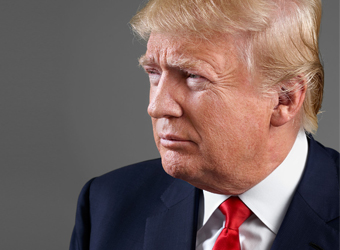A public feud between President Donald Trump and influential fellow Republican Bob Corker could narrow the path for a tax overhaul in the U.S. Senate, where a Republican go-it-alone effort is already showing signs of disunity.
Days after the Republican-controlled Congress took important steps toward advancing tax legislation, Trump’s Twitter attacks on Senator Corker over the weekend threatened to further alienate the president from other key Republicans such as Senator John McCain, whose “No” vote was pivotal in the party’s failure to repeal Obamacare in July.
Although a foreign policy specialist, Corker is also a key player in the tax debate.
He helped the Senate move closer to legislation by agreeing to a budget resolution that would allow tax reforms to reduce government revenue by up to $1.5 trillion over a decade, but he wants savings elsewhere and has vowed not to vote for a tax package that adds to the federal deficit.
Republicans hope Corker will ultimately vote for tax reform in hopes of boosting economic growth. But Trump’s tweets do not help, especially now that Corker has decided against seeking re-election next year and is free to vote whichever way he wants without having to face voters again.
Republicans are desperate to push through tax reform, seeing it as their last good chance to get a major legislative victory in the first year since 2006 that the party has controlled the White House and both chambers of Congress.
Trump and top Republican lawmakers have unveiled a plan to slash taxes for businesses and individuals, the first comprehensive overhaul of the U.S. tax code since 1986. They hope to get it done by January.
The tax push has been dogged by delays and distractions such as Trump’s criticisms of his own party’s leaders, including Senate Republican leader Mitch McConnell and House of Representatives Speaker Paul Ryan.
The latest incident erupted on Sunday when Trump lashed out at Corker in a series of derisive tweets saying the lawmaker had “begged” him for his endorsement ahead of the midterm election next year and announced his retirement after being turned down.
Corker replied by describing the White House as an adult day care center, and told the New York Times that Trump risks setting the country on the path to “World War Three”.
The spat complicates things for Republicans as they try to move tax legislation through the Senate, which they control by a slim 52-48 margin. Most Democrats oppose the plan, and Republicans cannot pass it if they lose support from more than two lawmakers of their own party.
“This is a delicate balance,” said Stephen Moore, a fellow at the conservative Heritage Foundation who helped write Trump’s campaign tax plan. “It all comes down to whether you can get 50 votes in the Senate. Right now, by my count, they’re at about 48. A few votes short.”
Divisions have emerged over proposals to repeal the federal inheritance tax and a popular deduction for state and local taxes. Senate Republican Rand Paul has expressed unhappiness over reports that Trump’s tax plan could raise taxes on some middle-class Americans.
Republicans need to keep Corker on board and prevent him from becoming a maverick like McCain, known for his sharply independent streak.
“Bob Corker, at this point, is as free as John McCain is to do what he thinks is right,” said William Galston, who was a domestic policy adviser to former President Bill Clinton.
Ron Bonjean, a Republican strategist with close ties to Congress and the White House, said he thinks most Republican senators will get in line despite their concerns over Trump’s treatment of their colleagues.
“While it may really bother other Senate Republicans and it’s unnerving that one of their own is being attacked, most aren’t retiring and know they must still work with the White House or answer to frustrated voters,” Bonjean said. Source: Reuters
Source: Reuters
